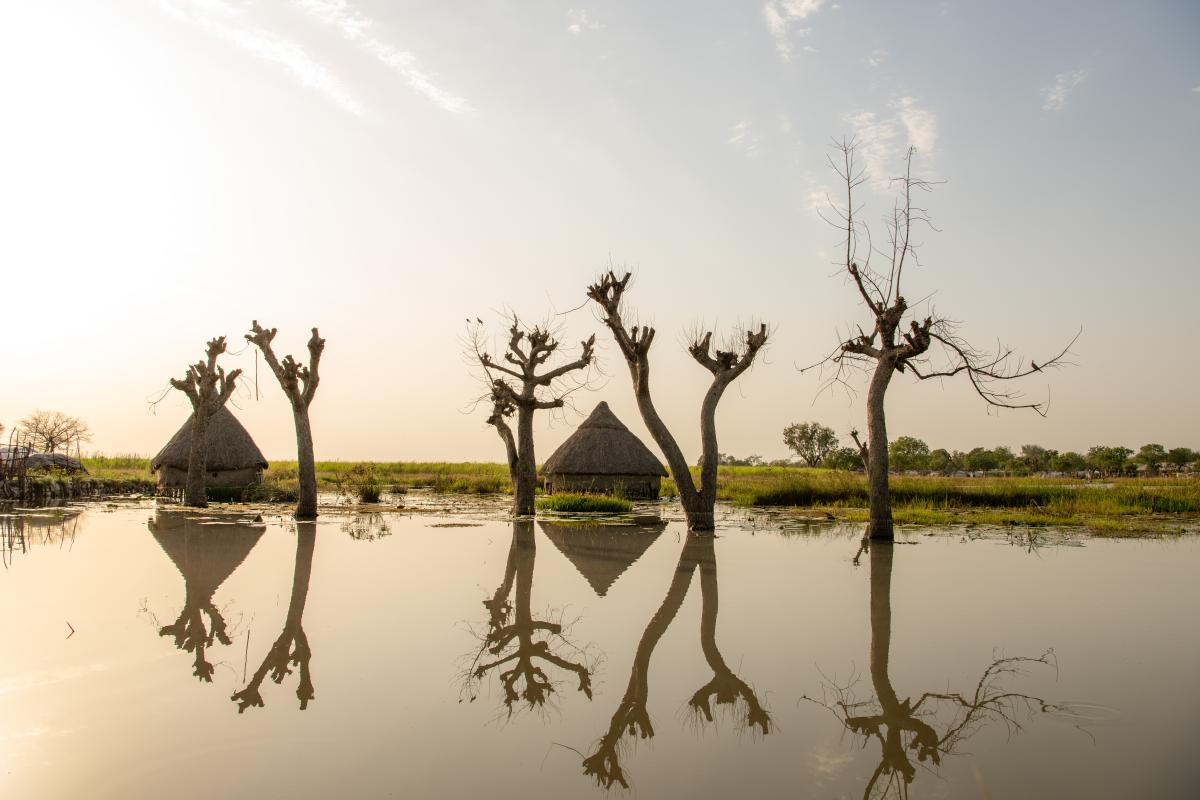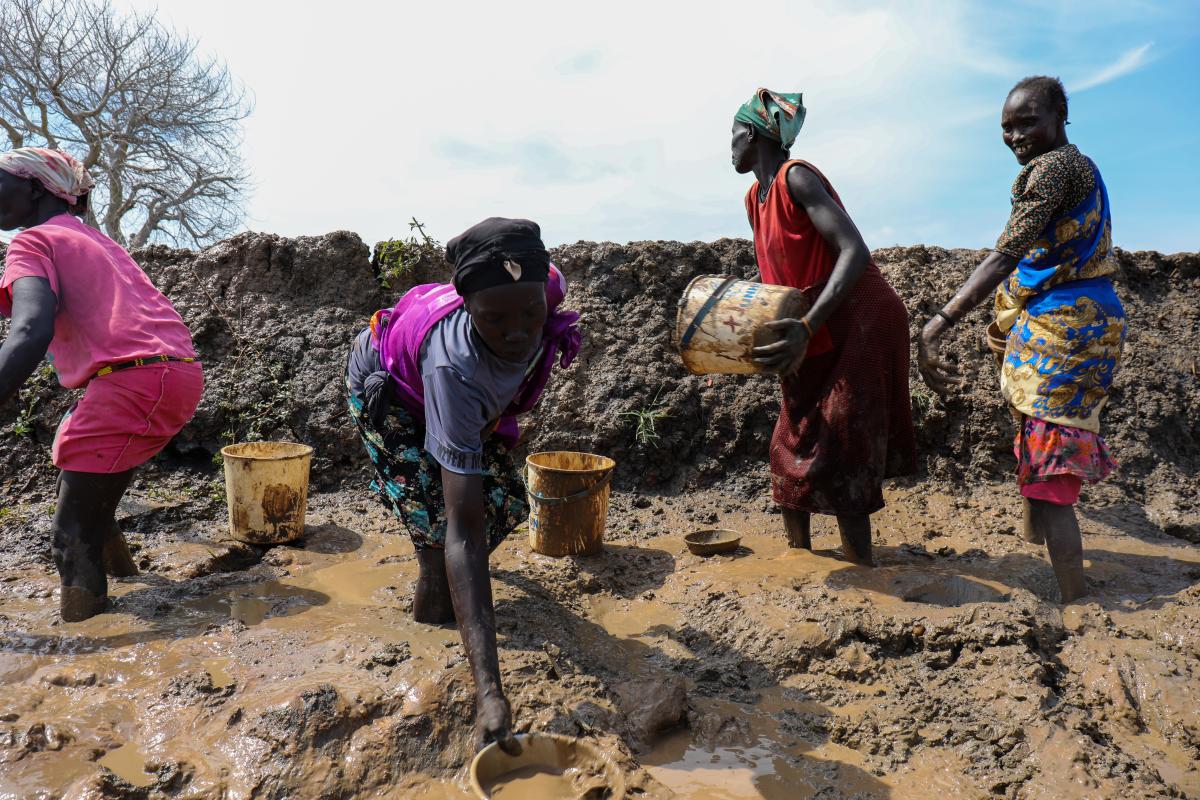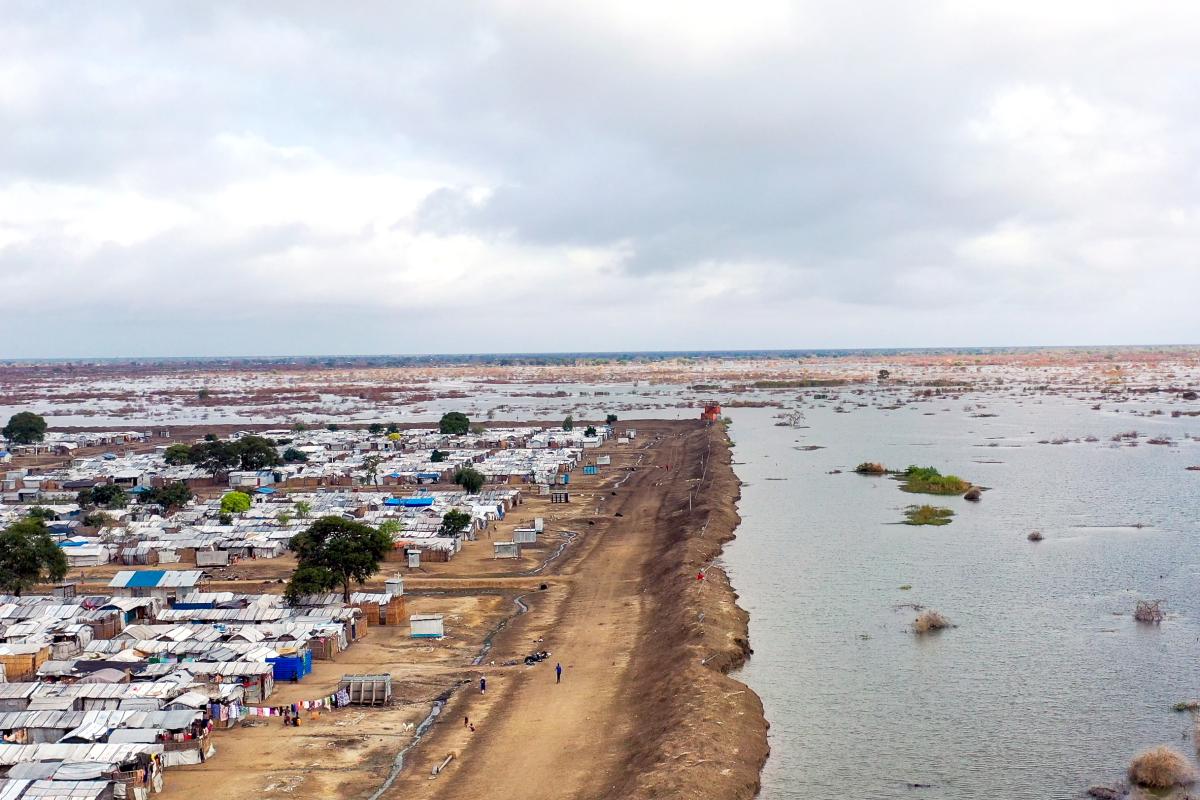South Sudan is home to one of the largest humanitarian crises on the African continent. With over 2.3 million South Sudanese in neighbouring countries and almost the same number of people displaced within the country’s borders. For most of its short history since gaining independence from Sudan in 2011, the country has been affected by constant conflict. Moreover, for the fourth consecutive year, floods have been covering two-thirds of the country, putting hundreds of villages entirely under water, thus adding to the hardships of the population. Nearly 1 million people have been impacted, their livestock swept away and their farmland inundated. This has ultimately forced them to flee and abandon their homes. Even the many camps established throughout the country for internally displaced are not safe from flooding as they are below the current water level. People are working hard to maintain their shelters dry by building large, compacted mounds of earth similar to dykes. Surrounded by loss and devastation, one can easily lose all faith in the future. However, in a small village part of Fangak county, farmers have replaced despair with resilience by learning new skills that help them survive.

Although floods are covering most of the land, in the village of Paguir, people are fighting back with determination by continuously adapting to the disastrous conditions. With the help of NGOs, a big number of women have recently started learning how to grow rice in flood waters. They are trained in broadcast seeding, which is a method that involves scattering seed, by hand in this case, or mechanically, over a relatively large area. ‘My idea is that we can have a mother-to-mother support group for those women. I think it could take on a life of its own. People can plant their rice, teach other people, take some seeds and multiply them. That’s the dream I have,’ says Joe Zubahyea, the rice programme coordinator in an interview to The Guardian. This is the first project of its kind, but if it is successful, they will be the first generation of rice farmers in the district.

Growing rice takes a lot of effort and preparation, and after a long day of hard work in the fields, when they return home to their family, these women have other chores awaiting for them. Before being able to rest, those with children have to bathe them, cook diner and put them to sleep. Many have lost their homes, living in temporary shelters with minimum to no comfort. However, despite all the hard work, this new endeavour boosts their self-confidence and brings a sense of satisfaction that makes it all worth it. ‘I feel confident about how to cultivate rice and the other women feel the same,’ says Nyadim Mawich. ‘For us women this knowledge raises us in the eyes of the community. It makes other people trust us more and also respect us more because we have a new skill’.
A great number of men are equally interested by the new opportunity of cultivating rice, yet some are still hesitant to join and just watch from afar. James Wuor was considering joining Zubahyea’s planting team, but instead, he observed closely and tried reproducing the same gestures. After a month, he took on planting rice in his flooded garden and was pleasantly surprized with how fast it flourished. ‘We normally grow sorghum and maize in a dry place. But when I saw the rice, it was growing in the water … I thought I could grow this rice so that my children can eat until the time that God takes this water away from us’.

Although it has not been around for a very long time, the community in Paguir has already benefitted immensely from the rice planting project. Women who were once taught rice cultivation, are then passing on their knowledge and teaching others in the village to help them develop similar skills. ‘It’s hard work,’ Nyagai Malual says. ‘But even if we stay here from now until the evening, I won’t get tired because I need to have more experience. In the future, I’ll carry on this experience, and I’ll make something for myself’. Not only the rice is shared among villagers, but women also take great pride in sharing their knowledge, demonstrating how, even after having gone through the worst hardships, a community can come together and work towards a better future.
The small village of Paguir is a great example of resilience and adaptability, bringing hope to those touched by terrible floods throughout the years. Natural disasters and conflict are sadly part of everyday life in South Sudan, and with your help, the South Sudanese population can receive much needed support.
Read the testimonies of the people quoted in this article in this story by the Guardian